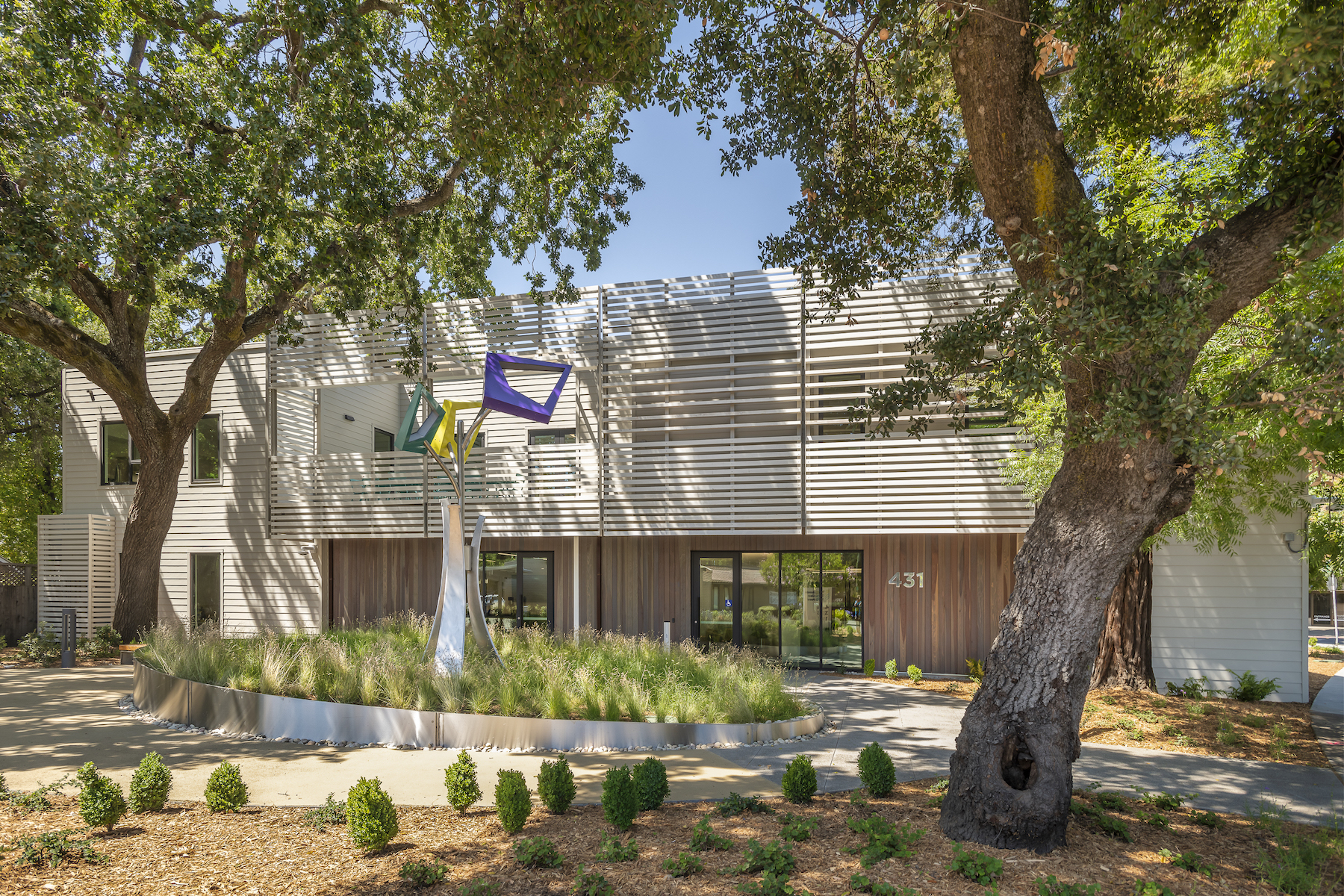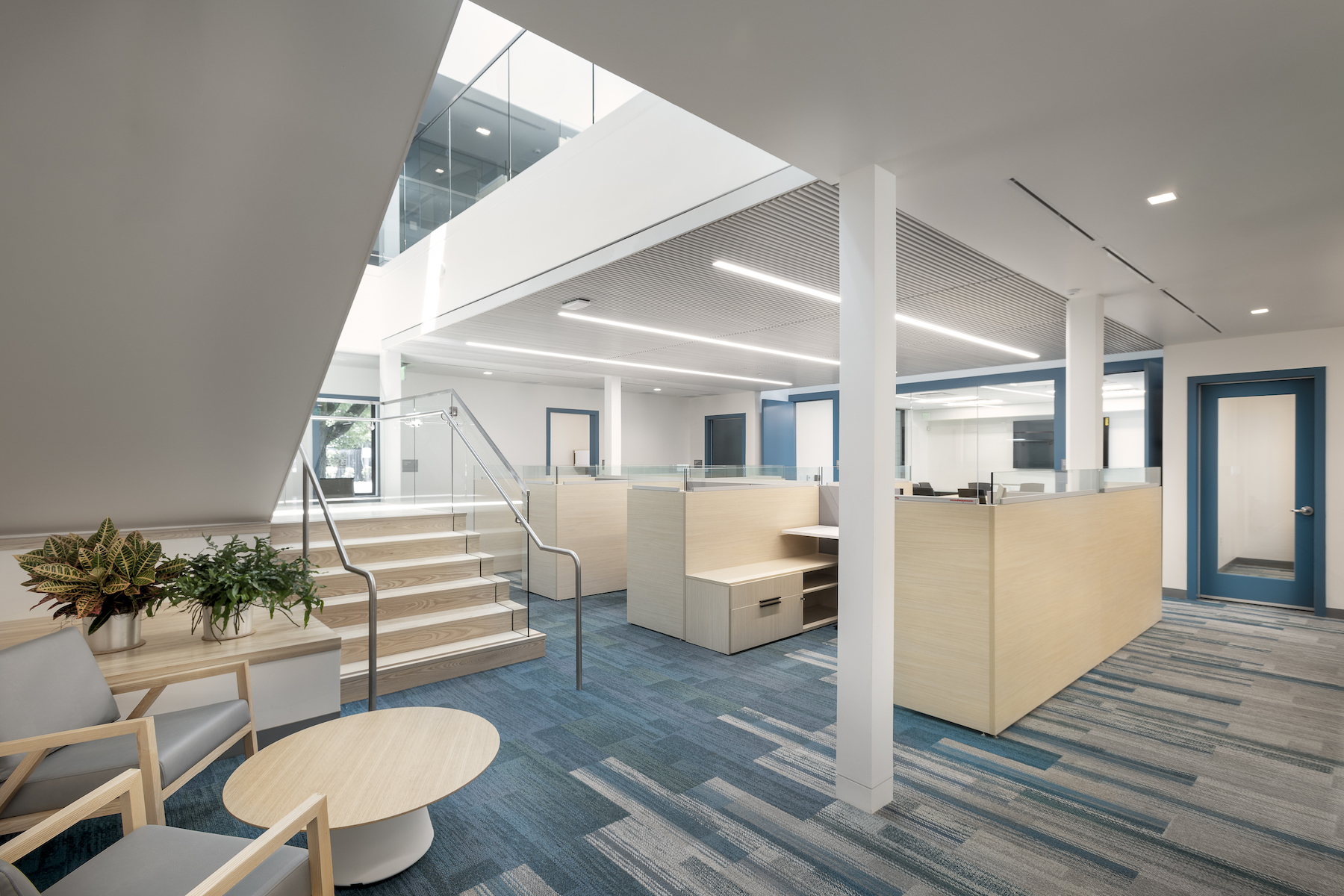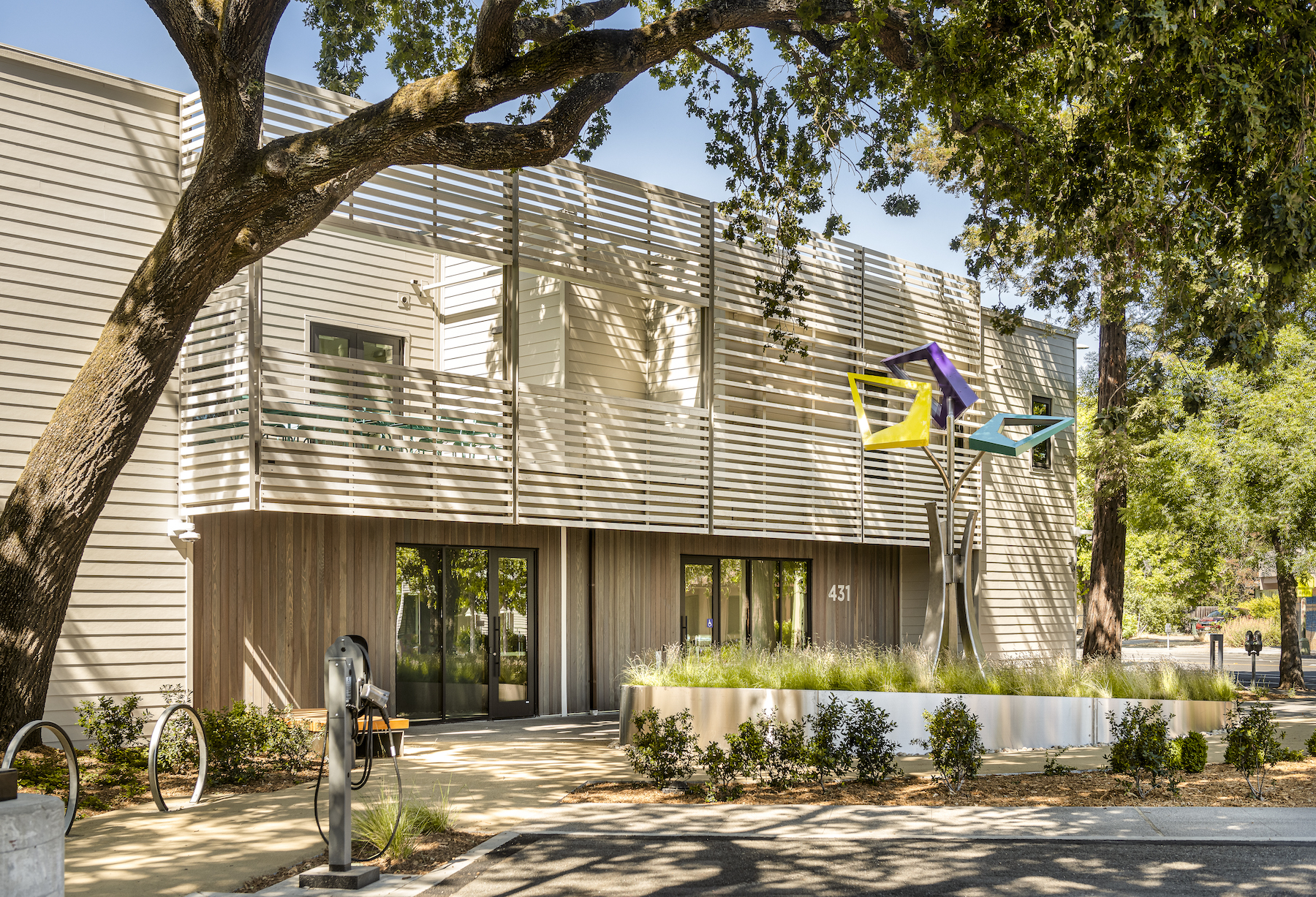Sonoma Clean Power (SCP), the public power provider for California’s Sonoma and Mendocino Counties, recently unveiled its new all-electric headquarters. Billed as the world’s first GridOptimal building, the project features an innovative microgrid and intends to go beyond net zero energy standards by reducing greenhouse gas emissions on the state’s electric grid.
Designed by EHDD Architecture, SCP’s new HQ is the initial pilot project for GridOptimal® Buildings Initiative, a joint program of the New Buildings Institute and the U.S. Green Building Council. The program aims to redefine how building design and operations can cost-effectively decarbonize the power grid and support a fully renewable electricity supply.
In Santa Rosa, Calif., the two-year renovation turned a 1979 structure into a building that enables decarbonization of the grid. The all-electric building is powered partially by an on-site solar array, with the rest coming from SCP’s completely renewable and locally generated EverGreen service. The building’s lights, HVAC, water heating, and 23 electric car chargers all draw from the grid only when California has plenty of clean power available. Typically, the battery system charges up midday, when there is abundant solar power. In the evening, the building can use that energy or place it back onto the grid, reducing the reliance on gas power plants.
“Our new headquarters is a ‘test case’ that’s working well, and we want people to know that this can be replicated — that clean electricity and decarbonization are attainable today. We also want people to understand that a 24/7 zero-emissions future for buildings is achievable and practical,” Geof Syphers, CEO, Sonoma Clean Power, said in a statement.
Design began in 2018, with construction completed in 2021. The microgrid installation was finished this year.
On the Building Team:
Owner and developer: Sonoma Clean Power
Design architect: EHDD Architecture
Architect of record: EHDD Architecture
MEP engineer: Guttmann & Blaevoet, with support from Point Energy Innovations
Structural engineer: ZFA Structural Engineers
General contractor: Midstate Construction
Construction manager: Sixth Dimension


Related Stories
Metals | Sep 11, 2023
Best practices guide for air leakage testing for metal building systems released
The Metal Building Manufacturers Association (MBMA) released a new guidebook, Metal Building Systems - Best Practices to Comply with Whole-Building Air Leakage Testing Requirements.
Office Buildings | Aug 31, 2023
About 11% of U.S. office buildings could be suitable for green office-to-residential conversions
A National Bureau of Economic Research working paper from researchers at New York University and Columbia Business School indicates that about 11% of U.S. office buildings may be suitable for conversion to green multifamily properties.
Multifamily Housing | Aug 23, 2023
Constructing multifamily housing buildings to Passive House standards can be done at cost parity
All-electric multi-family Passive House projects can be built at the same cost or close to the same cost as conventionally designed buildings, according to a report by the Passive House Network. The report included a survey of 45 multi-family Passive House buildings in New York and Massachusetts in recent years.
Regulations | Aug 23, 2023
Gas industry drops legal challenge to heat pump requirement in Washington building code
Gas and construction industry groups recently moved to dismiss a lawsuit they had filed to block new Washington state building codes that require heat pumps in new residential and commercial construction. The lawsuit contended that the codes harm the industry groups’ business, interfere with consumer energy choice, and don’t comply with federal law.
Sustainability | Aug 15, 2023
Carbon management platform offers free carbon emissions assessment for NYC buildings
nZero, developer of a real-time carbon accounting and management platform, is offering free carbon emissions assessments for buildings in New York City. The offer is intended to help building owners prepare for the city’s upcoming Local Law 97 reporting requirements and compliance. This law will soon assess monetary fines for buildings with emissions that are in non-compliance.
Green | Aug 7, 2023
Rooftop photovoltaic panels credited with propelling solar energy output to record high
Solar provided a record-high 7.3% of U.S. electrical generation in May, “driven in large part by growth in ‘estimated’ small-scale (e.g., rooftop) solar PV whose output increased by 25.6% and accounted for nearly a third (31.9%) of total solar production,” according to a report by the U.S. Energy Information Administration.
Resiliency | Aug 7, 2023
Creative ways cities are seeking to beat urban heat gain
As temperatures in many areas hit record highs this summer, cities around the world are turning to creative solutions to cope with the heat. Here are several creative ways cities are seeking to beat urban heat gain.
Government Buildings | Aug 7, 2023
Nearly $1 billion earmarked for energy efficiency upgrades to federal buildings
The U.S. General Services Administration (GSA) recently announced plans to use $975 million in Inflation Reduction Act funding for energy efficiency and clean energy upgrades to federal buildings across the country. The investment will impact about 40 million sf, or about 20% of GSA’s federal buildings portfolio.
Codes and Standards | Aug 7, 2023
Cambridge, Mass., requires net-zero emissions for some large buildings by 2035
The City of Cambridge, Mass., recently mandated that all non-residential buildings—including existing structures—larger than 100,000 sf meet a net-zero emissions requirement by 2035.
Multifamily Housing | Jul 31, 2023
6 multifamily housing projects win 2023 LEED Homes Awards
The 2023 LEED Homes Awards winners in the multifamily space represent green, LEED-certified buildings designed to provide clean indoor air and reduced energy consumption.

















